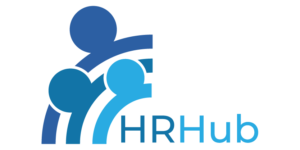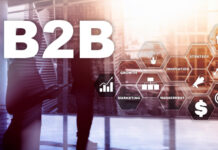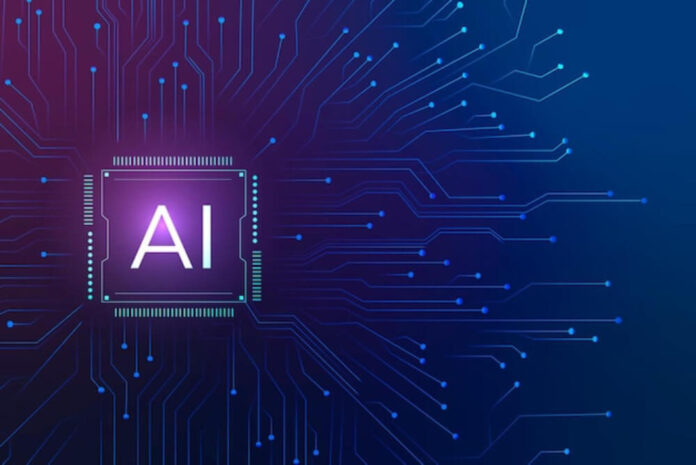In the current fast-paced business environment, capitalizing on cutting-edge technologies is a must to maintain a competitive edge. Artificial intelligence (AI) is one such technology that is progressing in the field of human resources (HR).
AI in HR is transforming workforce management and analysis for businesses, resulting in improved decision-making and increased organizational performance. This blog will explore how Artificial Intelligence may be used in HR to enhance workforce analytics, providing marketers, business owners, decision-makers, and B2B specialists with useful information.
1# Understanding AI in HR
Artificial intelligence in HR refers to the use of AI technology to improve and automate a range of HR tasks. These functions include hiring and onboarding as well as performance management and employee engagement.
Artificial intelligence technologies can analyze enormous volumes of data and spot patterns and trends that might be missed by traditional methods. This allows HR professionals to gain deeper insights and more precise forecasts.
2# The Role of Artificial Intelligence in Workforce Analytics
Data Collection and Integration
AI systems are capable of effectively collecting and combining data from a variety of sources, such as employee engagement surveys, attendance logs, and performance appraisals. This integration gives HR professionals a complete picture of the workforce, helping them to make data-driven choices.
Predictive Analytics
AI’s capacity for predictive analytics is one of its most important benefits for HR. AI can forecast future trends through the analysis of past data, including performance results, workforce demand, and staff turnover rates. This predictive capability allows companies to proactively address potential issues and make informed strategic decisions.
Enhancing Recruitment Processes
AI in HR is automating the screening and shortlisting of candidates, improving the hiring process. Artificial intelligence systems can analyze resumes, assess candidate qualifications, and match them with job requirements, reducing the time and effort required for recruitment. Predictive analytics-based AI-driven solutions can also assist in identifying the top applicants, offering a better caliber of hires.
Improving Employee Engagement
AI can also play a crucial role in enhancing employee engagement. Chatbots and virtual assistants driven by Intelligence can provide workers with immediate assistance and answers to their questions. It is also capable of analyzing sentiment data and employee input to pinpoint problem areas and assist HR departments in putting customized engagement plans into action.
Performance Management
Performance management is another area where AI in HR shines. AI systems can continuously monitor employee performance and provide real-time feedback. By analyzing performance data, AI can identify high-performing employees, highlight skill gaps, and recommend personalized training and development programs. This ensures that employees receive the support they need to excel in their roles.
3# Benefits of AI-Driven Workforce Analytics
Improved Decision-Making
AI-driven workforce analytics provides HR professionals with actionable insights, enabling them to make more informed decisions. With accurate data and predictive analytics, HR teams can develop effective strategies for talent acquisition, employee retention, and performance improvement.
Increased Efficiency
Artificial intelligence frees up HR workers to concentrate on more strategic duties by automating time-consuming and repetitive processes. Better resource allocation and enhanced production within the HR department are the results of this increased efficiency.
Enhanced Employee Experience
AI-powered tools can significantly enhance the employee experience by providing personalized support and development opportunities. This leads to higher levels of employee satisfaction and engagement, which, in turn, positively impacts overall organizational performance.
Competitive Advantage
Companies that leverage AI in HR gain a competitive edge by making data-driven decisions and staying ahead of industry trends. This advantage is particularly crucial in today’s dynamic business landscape, where agility and innovation are key to success.
Challenges and Considerations
While the benefits of AI in HR are substantial, it is essential to address potential challenges and considerations. Data privacy and security are paramount, as HR departments handle sensitive employee information. Companies must ensure that AI systems comply with data protection regulations and maintain transparency in their operations.
Conclusion
AI in HR is revolutionizing workforce analytics, enhancing informed decision-making, and optimizing recruitment processes. As AI technology evolves, its impact on HR and workforce analytics will grow, providing new opportunities for businesses to thrive in a competitive marketplace. Incorporating AI in HR is a strategic move that can drive significant improvements in workforce management and overall business performance. B2B professionals, business owners, marketers, and decision-makers should embrace this technology for sustainable growth.
I hope you find the above content helpful, for more such reading visit Hrglobalhub.com.











